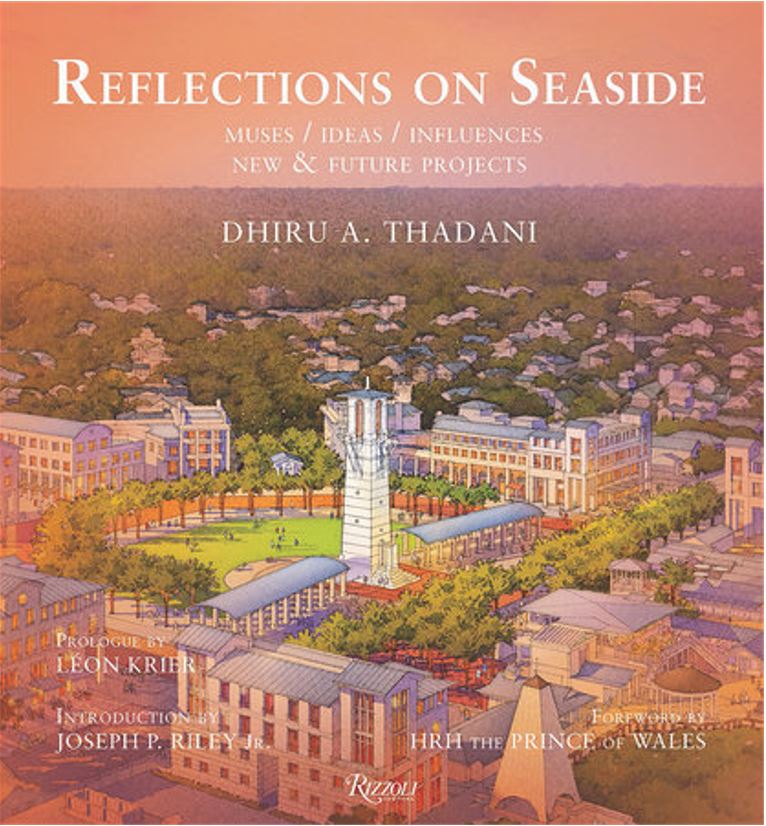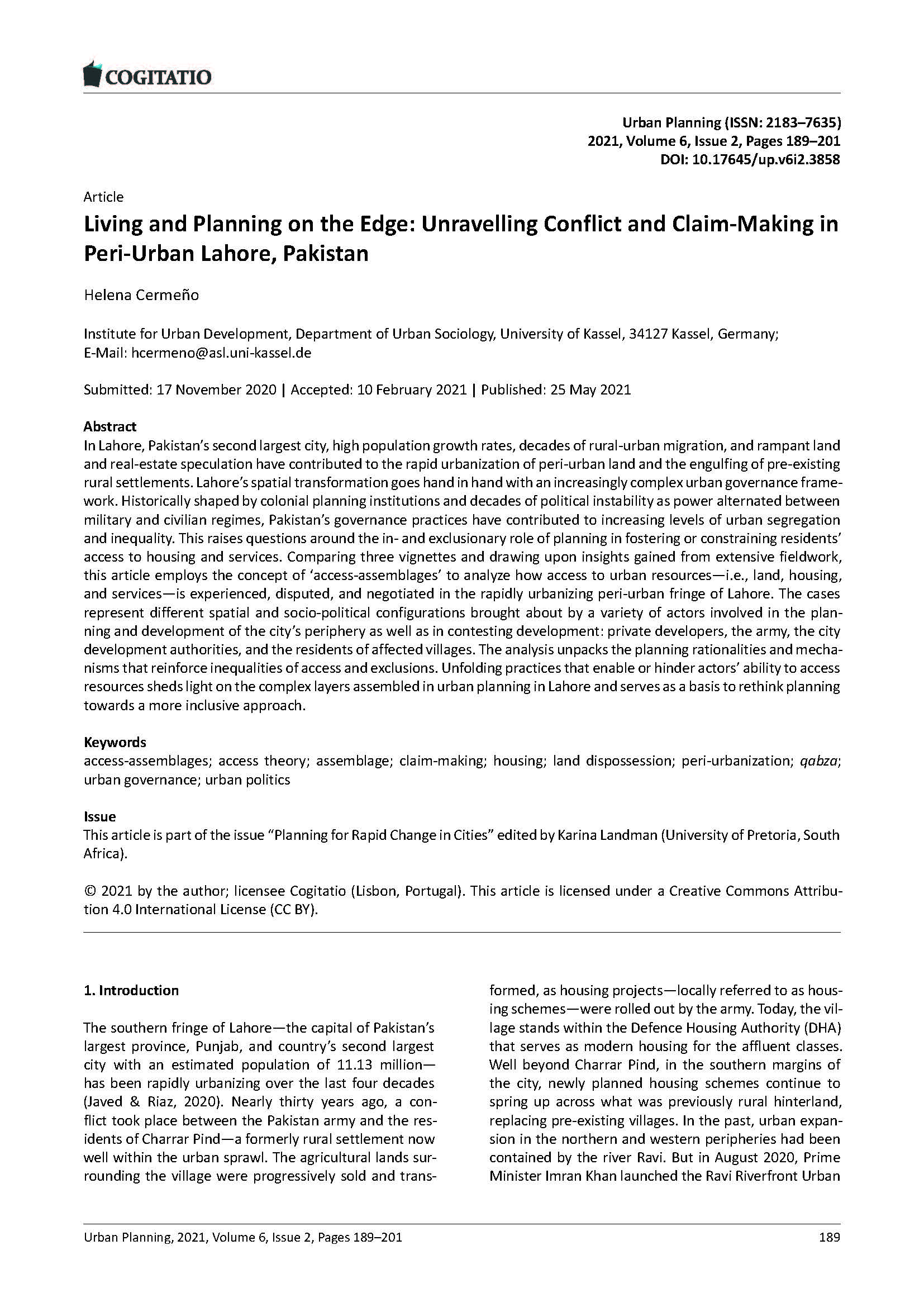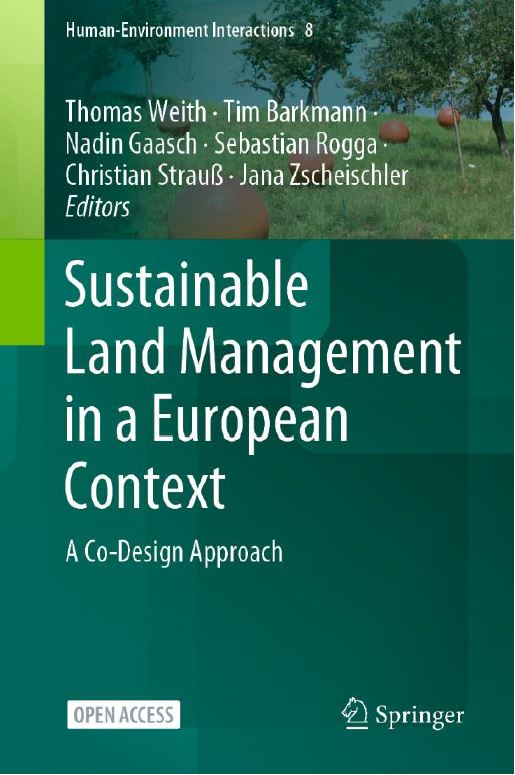Gerd Albers Award (GAA) was established in 1999 in honour of professor Gerd Albers, a co-founder and past president of the Society, who placed a particular emphasis on the task of publishing as a means of elucidating both the current debate and practical achievements in the planning field. This reputable award is bestowed for the best publication (book, book chapter, journal article and/or published project report) of the ISOCARP members.
In 2021, in total 14 GAA entries of high academic standards covering a range of topics of wide professional appeal were submitted – three books, nine journal articles and two project reports:
- Abu Dhabi public spaces: Urban encounters, social diversity and (in)formality, by Apostolos Kyriazis, Clio Chaveneau and Hadrien Dubucs
- Reflections on Seaside: Muses, Ideas, Influences, and New & Future Projects, by Dhiru Thadani
- Sustainable Land Management in a European Context: A Co-Design Approach, by Thomas Weith, Tim Barkmann, Nadin Gaasch, Sebastian Rogga, Christian Strauß and Jana Zscheischler (editors)
- “Physical distancing, children, and health. The COVID-19 crisis’ impact on children and how this could affect future urban planning and design policies” (Cities & Health), by Apostolos Kyriazis, Gregor Mews, Elisabeth Belpaire, Jens Aerts and Shahzad Ahmed Malik
- “Walkability Index for Elderly Health: A Proposal” (Sustainability), by Fernando Brandao Alves, Sara Maria Rodrigues da Cruz, Anabela Ribeiro, Ana Bastos Silva, Joao Martins and Ines Cunha
- “Understanding heterogeneous spatial production externalities as a missing link between land-use planning and urban economic futures” (Regional Studies), by Haozhi Pan, Tianren Yang, Ying Jin, Sandy Dall’Erba and Geoffrey Hewings
- “Living and Planning on the Edge: Unravelling Conflict and Claim-Making in Peri-Urban Lahore, Pakistan” (Urban Planning), by Helena Cermeño
- “Observations on Death and Life of Public Space in Australia During the COVID-19 Pandemic” (The Journal of Public Space), by Gregor Mews and Milica Muminovic
- “Excavating’ Pruitt-Igoe using space syntax” (Architectural Research Quarterly), by Mark David Major
- “Autopoietic interaction systems: micro-dynamics of participation and its limits” (International Planning Studies), by Angelique Chettiparamb
- “Mainstreaming land use planning into disaster risk management: Trends in Lima, Peru” (International Journal of Disaster Risk Reduction), by Sally Fernanda Torres Mallma
- “The Image of the City on Social Media: A Comparative Study using ‘Big Data’ and ‘Small Data’ Methods in the Tri-City Region in Poland” (Landscape and Urban Planning), by Jianxiang Huang, Hanna Obracht-Prondzynska, Dorota Kamrowska-Zaluska, Yiming Sun and Lishuai Li
- Strategic Action Plans for Rental Housing for Internal Migrants in Kochi Municipal Corporation, by Angelique Chettiparamb
- Keeping Urban Housing Permanently Affordable: The London Community Land Trust, by Angelique Chettiparamb.
The jury composed of the Scientific Committee members – Dushko Bogunovich (New Zealand), Ulrich Graute (Germany), Hendricus Simarmata (Indonesia), Junyan Yang (China) – as well as Ana Peric (Switzerland) as the ISOCARP Director for Awards and the jury president, decided on the winners as follows.
Congratulations to the winners and a big thank you to all authors who submitted a book or an article. We look forward to successful GAA submissions the next year, too.
Best Book
Reflections on Seaside: Muses, Ideas, Influences, and New & Future Projects, by Dhiru Thadani
Thadani’s 850-pages volume is a rich, well-structured, and comprehensive piece on the historical development and contemporary challenges of urban design of Seaside, Florida. An effort put into compiling the book – in terms of its organisation, writing and illustrating, is indisputable. However, the crucial value of the book is in its final assessment of Seaside as a well-known and influential project of New Urbanism, as reported by some of the movement’s key protagonists. At first sight, the book seems to tackle an ‘old topic’ lacking the relevance and originality, but it is a hoax: this is a new, mature perspective on Seaside and has tremendous academic and professional value. The book is also beautifully arranged and easy to receive regardless of the amount of material presented.
Best Article
Living and Planning on the Edge: Unravelling Conflict and Claim-Making in Peri-Urban Lahore, Pakistan, by Helena Cermeño
The article skilfully combines the concept of assemblage and access theory to tackle the problem of power prevailing over the rule of law. Depicting the case of Lahore, the second-largest city in Pakistan, and using the in-depth qualitative methodological strategy, the paper showcases the three neighbourhoods of conflict that emerged amidst the rapid urbanisation of Lahore’s periphery. More precisely, the article illuminates the underlying dynamics, mechanisms, and power relations influencing the ability of urban actors to benefit from urban resources. Highlighting the exclusionary nature of planning, the paper taps into the potential of affective connections of residents with their land and their desires for and claims to development as a response towards change and uncertainty. In doing so, the article overcomes the specificity of a single case study to refer to the universal values that should be re-evaluated for more than a billion inhabitants living under similar sociospatial conditions across the globe.
Special Mention
Sustainable Land Management in a European Context: A Co-Design Approach, by Thomas Weith, Tim Barkmann, Nadin Gaasch, Sebastian Rogga, Christian Strauß and Jana Zscheischler (editors)
The edited volume provides an excellent analysis of the land use patterns and changes in Europe and the opportunities to develop the sustainable land management (SLM) approach further. The book chapters are integrated well into the broader thematic context, making the topic of SLM appealing to experts in urban planning, governance, policy-making, and environmental, social and geosciences. However, a particular value of the publication is in elucidating the process of co-creation of knowledge, skills, and policies. In doing so, the authors, using different disciplinary lenses, reflect upon the eternal topic and need for collaboration among numerous stakeholders to, finally, redefine urban governance approaches enabling SLM.


